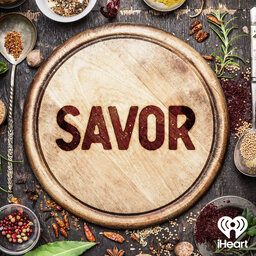Fictional Foods: 'Pan's Labyrinth'
This film ties together themes of the real, historical power of food and stories via fantastical threads. Anney and Lauren explore the semi-fictional foods of ‘Pan’s Labyrinth’.
In 1 playlist(s)
Savor
Savor digs into how people live and how they eat – and why. Hosts Anney Reese and Lauren Vogelbaum i…Social links
Follow podcast
Recent clips

Oysters and Activism: The Thomas and George Downing Episode
38:18

Savor Gives You a Raspberry
36:28

Seeing Red Beans and Rice
35:46
 Savor
Savor